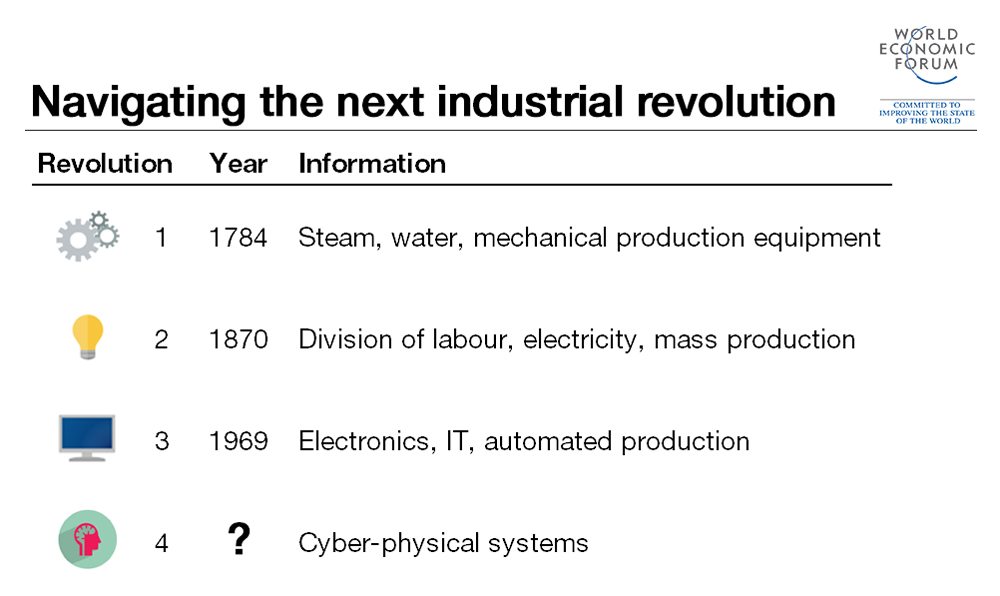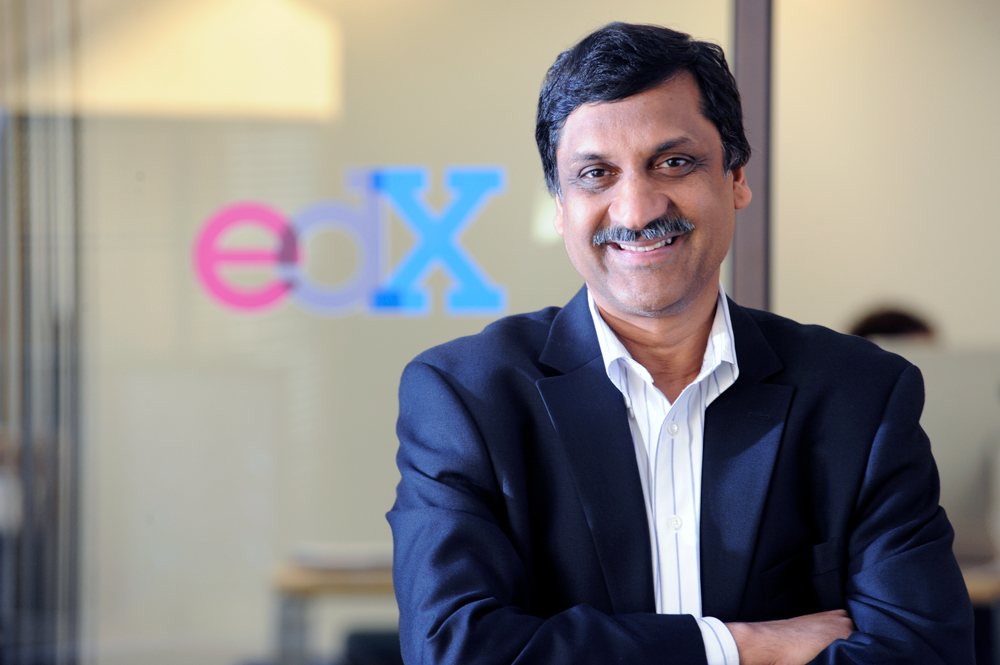“Around two billion jobs are at a high risk of disappearing due to automation in the coming decades,” said a recent report from the International Commission on Financing Global Education. The commission, set up by the UN in 2015, is headed by Gordon Brown (former prime minister of the UK) and has more than 20 members, including current and former heads of state and Nobel laureates.
As one of the members of this commission, Anant Agarwal, CEO of edX and a professor at MIT where he teaches electrical engineering and computer science, believes that new industries will emerge and existing ones will be completely reshaped, creating a need for skilling at an unprecedented speed and scale.
“We need a planet-scale reskilling and upskilling soon,” he said, speaking to FactorDaily recently.
Rapid changes + longer lives = continuous learning
Anant speaks about two forces that are disrupting the way we need to think about education. The first is the fourth industrial revolution that is already underway, thanks to the disruptive confluence of AI, automation and robotics. This mandates a rapid, large-scale upgrade of skills.
The second force is the increasing longevity of our physical (and productive) lives. Advances in medicine will help more and more people to live a 100 years or more in the coming decades, and retiring at 65 will no longer be the norm.
“The model of education where you learn for 20-odd years and then work for the next 40 will rapidly get irrelevant,” says Anant who believes that people will become life-long, continuous learners in order to stay relevant.
The speed at which new skills are emerging and changing the face of employment is unprecedented. The sexiest job of the 21st century — being a data scientist, which is expected to provide anywhere between a one to five million jobs by 2018, is only a little more than a decade old. How we currently describe “data science” was defined as late as 2001 and it wasn’t until a few years later that ‘data scientist’ became a well-understood job title.
Anant speaks about two forces that are disrupting education. The first is the fourth industrial revolution that is already underway; the second is increasing longevity
Adapting to this speed is difficult for universities and colleges. The problem is more acute in countries like India. “Hiring expert professors to teach data science (and other cutting edge topics) is hard because there are very few of them around,” says Anant, who completed his bachelor’s degree from Indian Institute of Technology Madras before getting a PhD in electrical engineering from Stanford University.
The report by the International Commission on Education highlighted the fact that developing countries may need twice the existing number of teachers in order to address the need — teachers who aren’t going to be available.
A million students show the way
“The education to suit the emerging need has to be online, adaptive and cutting edge,” says Anant. edX, which claims to be the only large open-source and non-profit MOOC (massive open online course) provider in the world, was set up by MIT and Harvard University in 2012.
The courses that edX offers (all free) from hundreds of universities around the world, including IIM Bangalore, IIT Bombay and BITS Pilani in India, employ a pedagogical style built for the modern, distracted learner. They incorporate 10 minutes of videos followed by exercises and interspersed with group activities and projects.

They also offer a faster, more effective way to gain credentials (in the form of a degree or certifications) through micro masters programs across 20 cutting-edge topics, including machine learning, AI and cybersecurity. Each course, brought by the best universities and endorsed by corporations (for example, Walmart endorses the supply chain micro masters from MIT), are about a fourth in duration compared to full-fledged masters programmes, thus giving faster access to relevant skills while providing necessary credentials.
The courses that edX offers (all free) employ a style built for the modern, distracted learner. They incorporate 10 minutes of videos followed by exercises, group activities and projects
“We’ve created a new model of learning, credentials and endorsements,” says Anant.
In a way, edX remains the last bastion of the promise of MOOCs. In 2013 during their peak, MOOCs were declared the new way the world would learn but then they slowly lost steam. Many popular MOOC providers (like Coursera) moved from a free to a paid model. Poor course completion rates led many to question the effectiveness of these models. Anant, however, claims that completion rates for certification courses are as high as 80%.
As on date, edX claims to have 10 million global students using the platform. Coursera and Udacity, the two other leading MOOC providers, claim to have around 15 million and four million registered students respectively.
“We’ve created a new model of learning, credentials and endorsements,” says Anant
More than a million students from India use edX making it the second biggest market after the US. These students tend to be younger (median age of 23) than their global peers and very interested in certifications. Nearly half of them post their certificates on LinkedIn and have seen some form of career advancement after completion.
Anant believes that this is validation for the model, which will get more adaptive and personalised using machine learning and AI. “We use graders based on machine learning already, and soon we will personalise the learning experience,” he says.
It remains to be seen if this is the approach that could serve the growing chasm in our education to serve for the future.
Subscribe to FactorDaily
Our daily brief keeps thousands of readers ahead of the curve. More signals, less noise.
To get more stories like this on email, click here and subscribe to our daily brief.









